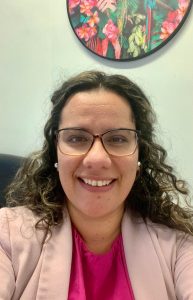COVID-19 Talanoa: the South Canterbury Tongan community
 Last week, Pauline-Jean Luyten (Tongan, Dutch) walked across the graduation stage to be “capped” for completing her Master of Indigenous Studies degree.
Last week, Pauline-Jean Luyten (Tongan, Dutch) walked across the graduation stage to be “capped” for completing her Master of Indigenous Studies degree.
Pauline is a Timaru-based lawyer. She conducted her MIndS research on a local topic, but one that touches everyone across the globe: “COVID-19 Talanoa: The Voices of Tongan Kāinga in South Canterbury”. Dr Telesia Kalavite, of our Pacific Islands Studies programme supervised this research.
Abstract: This research is an exploratory study on the experiences of Tongan kāinga (distant relations/community) in the rural region of South Canterbury, New Zealand before and during the COVID-19 pandemic. It examines Tongan kāinga’s migration stories and their experiences in response to COVID-19 from March 2020 to May 2020. Migration stories were gathered to provide background and context for Tongan kāinga’s diverse responses during COVID-19 and to acknowledge participants’ journey to the diaspora. A further aim was to challenge the deficit theory paradigm often ascribed to Pacific ethnic-specific populations by demonstrating the richness and strength of Tongan cultural values, knowledge, and customs. The Kakala methodology comprised individual talanoa with nine participants based in South Canterbury. Findings showed that kāinga Tonga in South Canterbury derived strength from their children, family, and faith to persevere and support each other throughout the COVID-19 pandemic. Hardships were navigated through care and concern for others, gathering and processing information, and collective activation and mobility.
Findings also revealed that participants negotiated between Tongan and Western values in the predominantly New Zealand European ethnic region. They do this as individuals, and as kāinga through the Tongan Society South Canterbury. Local community-based solutions and cross-cultural provider collaboration, irrespective of ethnicity, was strong and effective in South Canterbury with selective organisations. Participants reflected and demonstrated that Tākanga ‘Emau Fohe (together we can make a difference) contributed to overcoming hardships during COVID-19. This is the first piece of academic research on the experiences of Tongan kāinga in South Canterbury, or any comparatively small Tongan or Pacific ethnic-specific community in New Zealand. Further research is warranted.
Future plans: We asked Pauline what her future plans might be. She replied, “I intend to undertake PhD study and conduct further research on Tongan kāinga in the provincial regions in the South Island or isolated areas in Aotearoa New Zealand. Being NZ born with both Tongan and Dutch heritage, I have an interest in exploring the praxis of engagement between cultures, identity and belonging. Most importantly, to identify practical ways for our respective cultures to understand each other, substantiated in community-based solutions and research. I aim to utilise the knowledge and skills derived from my thesis to assist with cultural awareness and education described in a way that is understood by mainstream resident population whilst ensuring maintenance of Tongan values. Contemporaneously, I endeavour to be and support our kāinga to be at the decision-making table to ensure equity of input, equity of access and equity of outcome and challenge the deficit theory paradigm. This way we can carry our ancestors’ values and leave a legacy for our fānau (children)”
Fakamālō atu, Pauline. We wish you all the best with your future studies.

